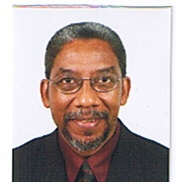 12 Assemblymen begin negotiations 12 Assemblymen begin negotiations Coming out of the meeting between the Prime Minister and the 12 elected Assemblymen in Tobago – 6 PNM and 6 PDP – there is an attempt to negotiate the establishment of an interim arrangement of the THA structure. The concept of interim arose out of the meeting preferring one of two options outlined by the Prime Minister as possible election scenarios :
Such interim structure would also break the deadlock resulting from the 6-6 tied outcome of the January 25 THA elections. To achieve that interim arrangement, negotiations among the 12 Assemblymen have to be conducted to arrive an agreed distribution of position in both the Assembly (legislate body) and the Executive Council (executive body) of the THA. Given the strictures of party politics, these negotiations take on the form of negotiations between the two parties, the symbols of which the Assemblymen were elected under. To be successful, these negotiations must be conducted with the objective of facilitating the administration of Tobago by the THA while the self-government of the island via the passage of the Self-Government Bill is brought to conclusion. These negotiations are not about advancing the narrow interests of either the PNM or PDP and seeking to have an advantage in ‘wielding power’ or decision-making in the Assembly. Negotiations based on such narrow partisan interest will inevitably be zero-sum or win-lose negotiations and about winner and loser, and be conducted in the customary adversarial style. Such an approach sets aside the most important goal of facilitating the governance of the island and working collectively to advance the self-government cause. Those larger and most critical goals MUST be at the forefront and party positioning MUST be set aside. To understand, the ‘mathematics’ of these negotiations the structure of the THA must be understood. THE THA STRUCTURE THE ASSEMBLY (s. 5 Tobago House of Assembly Act, Ch. 25:03 Assemblymen (elected at primary election) - TWELVE (12) Councillors (appointed under s. 9 THA Act) - FOUR (4) Presiding Officer (elected under s.7 THA Act) - ONE (1) Deputy Presiding Officer (elected under s.10) - ZERO (0) The Deputy Presiding Officer must be a member of the Assembly and does not add to total number of the composition of the Assembly. The total composition is SEVENTEEEN (17), IF the Presiding Officer is NOT an Assemblyman or Councillor. The total composition is SIXTEEN (16), IF the Presiding Officer is either an Assemblyman or Councillor or, if No Minority Leader is appointed and a 4th Councillor is therefore not appointed. THE EXECUTIVE COUNCIL (s.33 Tobago House of Assembly Act, Ch. 25:03) Chief Secretary (Assembly member) Deputy Chief Secretary (Assembly member) Secretaries - No more than 7 (Assembly members or not) The maximum total composition of the Executive Council is therefore, NINE (9). However, since the members may all come out of the Assembly (either Assemblymen or Councillors) there is not necessarily a numerical addition to the number of the membership of the Assembly. So, the grand total of persons to hold the offices of both the ASSEMBLY (legislature) and EXECUTIVE COUNCIL (executive) may be the exact same number as the membership of the Assembly. So, the negotiations are for a Presiding Officer and 3 or 4 Councillors on the Assembly, depending on whether there is a Minority Leader. That is a total 4 or 5 positions. On the Executive Council, the negotiations are for Chief Secretary and Deputy Chief Secretary and up to 7 Secretaries., That is for a maximum of 9 positions. Currently, there are only 4 holdover Secretaries. So, the size of the Executive Council is also a negotiable item. Therefore, it is entirely possible to achieve a 50:50 split in both the Assembly and Executive Council as the outcome of these negotiations. These ARE negotiations and the POSITIONS of either party at any point in time are just that – Positions. So, the noise being made about the PDP in its opening gambit saying 3 positions spread between the Assembly (Deputy Presiding Officer) and the Executive Council (Deputy Chief Secretary and Secretary of Finance) does not present any advantage to that party in the legislative arm of the THA. Equally, it presents no numerical advantage to the PDP in the Executive Council if the number of Secretaries is fixed at an even number (4 or 6 for example). So, all the noise by the PNM about the PDP not negotiating or negotiating in bad faith by its position on those 3 offices is a red herring. Similarly, the argument advanced by the PL of the PNM Tobago Council and other PNM supporters about incumbency is nothing but a position. The real issue is: if both parties are serious about achieving the broader goals of these negotiations, they will realise that it is in their own best interest and in the interest of the people of Tobago, to arrive at a negotiated settlement on a WIN-WIN basis (which can be achieved with a 50:50 split in both the Assembly and Executive Council. This is a real test of the politicians on both sides and the sincerity of each and everyone of them when they say they are for Tobago and its autonomy first and above narrow party interests. Let’s see what they are really for. Clyde Weatherhead A Citizen Advocating for a Free and Equal Union between Tobago and Trinidad since the 1970’s. 05 March 2021 |
AuthorI am a appalled at the loss of the simple skills of discussing ideas and sharing Opinions to DEEPEN ANALYSIS and UNDERSTAND DEVELOPMENTS to ARRIVE AT SOLUTIONS. Archives
April 2024
Categories |

About Clyde Weatherhead
Clyde has been involved in public life as a political activist, a trade unionist, Lawyer, Teacher and Author |
Connect With Clyde
Write to Clyde on Facebook Visit Clyde's Author Page on Amazon Go To Discussion on Facebook For Employment Relations Issues |

 RSS Feed
RSS Feed